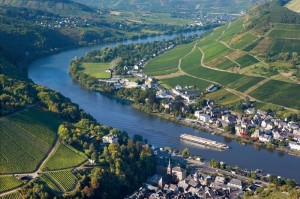Do you come back from vacation more stressed out than when you left?
Based on a survey of world travelers by author Shawn Achor and “happiness researcher” Michelle Gieland from the Institute of Applied Positive Research, “poorly planned and stressful vacations eliminate the positive benefit of time away,” as Achor recently wrote in the Harvard Business Review.
(See my previous post on travel and happiness for more detail on these findings.)
Achor contends there are four main ingredients that you should add to your vacation mix to result in a happy travel experience:
* “Focus on the details”: Nearly three quarters of travelers found the most stressful part of travel to be “figuring out the details,” according to Achor. “Travel uncertainty, transportation, wasting time figuring things out on the trip, and being unfamiliar with the location” are all stressors, he writes, suggesting that a good travel agent can help.
* “Plan more than one month in advance”: Nine out of ten good trips correlated with advance planning of more than a month, Achor reports.
* “Go far away”: More than 80 percent of the best trips “were to locations outside of the country,” the study showed. The happiness levels rose the farther away from home the travelers went. And “staycations” at home did not yield much happiness.
* “Meet with someone knowledgeable at the location”: With the biggest travel stressors being “managing travel details, not feeling safe, and lack of knowledge of the location,” the study found that the best, least stressful trips involved having a local host to “ensure social support and local knowledge.”
Other surveys might yield somewhat different numbers, but I think the basic premises of the travel happiness study make sense.
I would add, though, that one of the reasons for the explosion in popularity of guided tour companies — many of them catering to baby boomers looking for adventurous trips served with a side of comfort — is just that: to reduce the stress that many people feel about hunting for, booking and guiding their own travel.

A Uniworld Moselle River cruise offers stress-free guided excursions. Photo courtesy of Uniworld Boutique River Cruise Collection
These are not your grandmother’s guided trips: they may include walking and cycling trips, river rafting trips, and bucket-list-type trips to destinations like the Galapagos, Machu Picchu and Kenyan wildlife safaris. Or, a bit less active, history- or archeology-themed learning vacations, or perhaps a guided river cruise in Europe or Southeast Asia. Trips that might require more planning than you’d like to do — or don’t know where to start.
Trips that should leave you energized when you get home — not stressed out.
For an excellent article on how to relieve stress, go here.
This Week’s Travel Quiz:
About what percent of jobs worldwide are related to tourism?
A. Five percent
B. Two percent
C. Nine percent
D. 12 percent
I’ll have the answer in my next post.
*













Leave a Reply